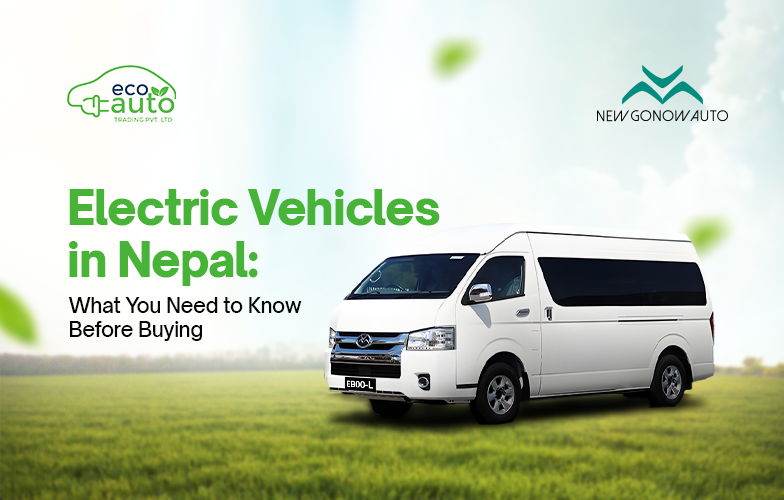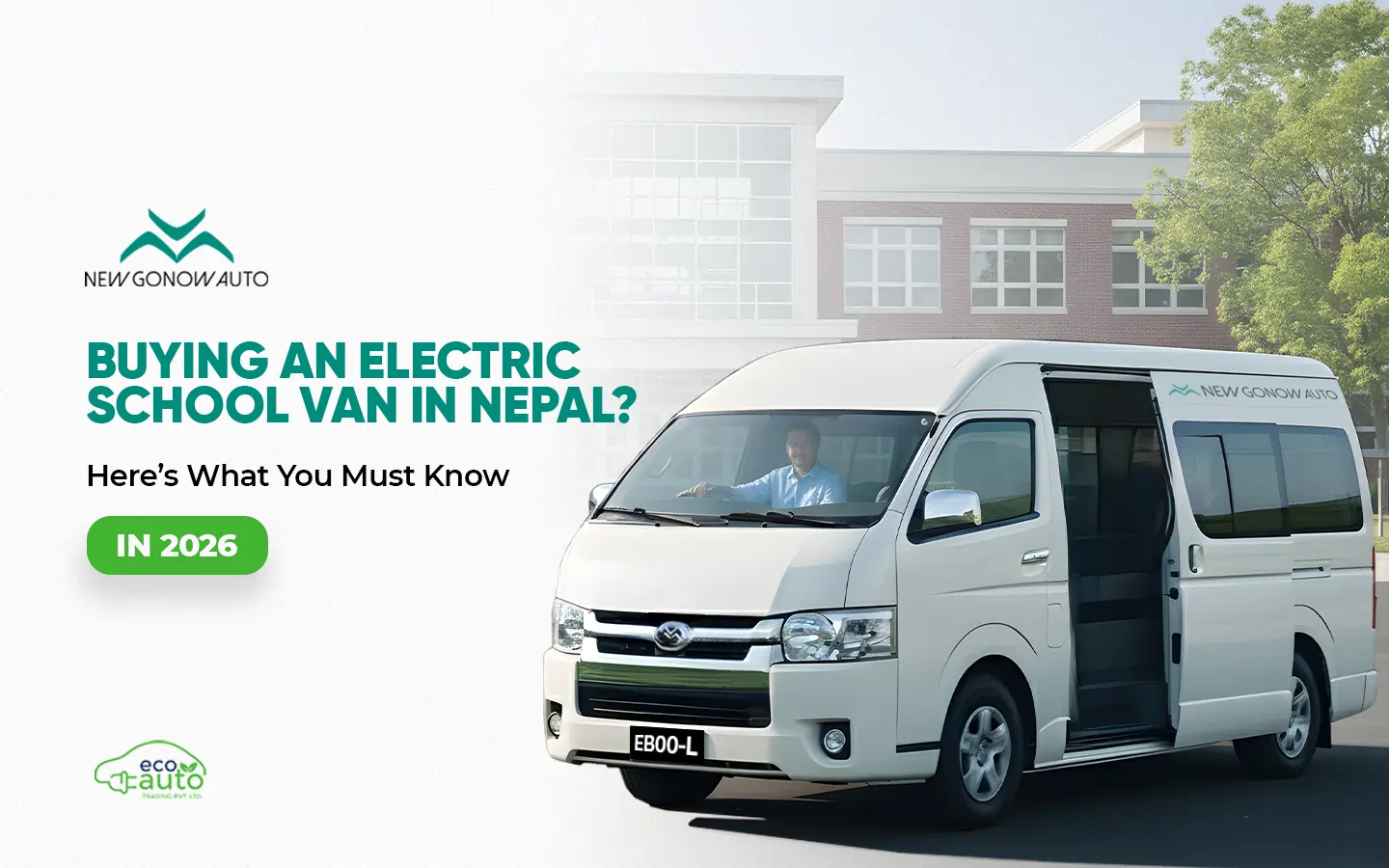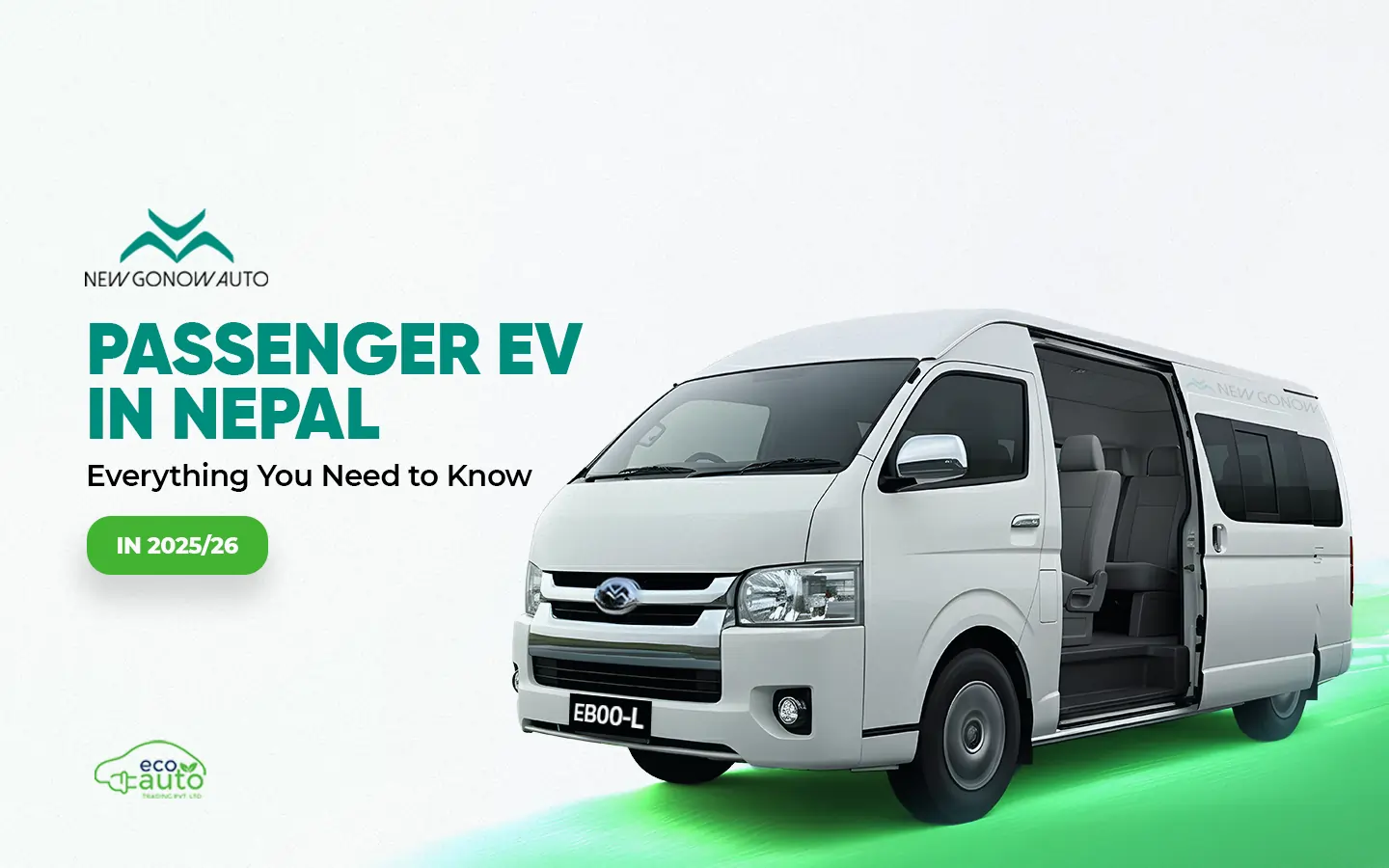
Electric Vehicles in Nepal: What You Need to Know Before Buying
Electric vehicles (EVs) are becoming increasingly popular in Nepal, especially with rising fuel costs, frequent load shedding, and the growing demand for sustainable transportation. For businesses and individuals alike, EV vans are now a practical and eco-friendly solution.
Whether you’re looking for a personal ride or a commercial transport option, here’s everything you need to know before investing in an EV—brought to you by Eco Auto, Nepal’s trusted EV van provider.
1. Why Nepal Is Moving Toward EVs
Nepal’s heavy reliance on imported petroleum and growing air pollution in cities like Kathmandu are pushing consumers and companies toward EVs. Key advantages include:
- Affordable running cost – EVs cost as little as Rs. 1.5 per km.
- Zero emissions – Great for improving urban air quality.
- Tax benefits – The Nepal government has offered reduced customs and VAT on electric vehicles.
Eco Auto is contributing to this green shift with a range of EV vans, designed specifically for Nepal’s roads and transport needs.
2. Why Choose an EV Van in Nepal?
EV vans are ideal for:
- Delivery services (food, courier, cargo)
- Passenger transport (schools, tourist vans, shuttle services)
- Logistics and company fleets
Benefits of choosing Eco Auto’s EV vans:
- Spacious interiors for passengers or cargo.
- High load capacity with stable power output.
- Quiet performance and low maintenance.
- Environmentally responsible transport solution for businesses.
3. Government Support for EVs
The Government of Nepal is actively encouraging EV adoption:
- Customs duty is significantly reduced for EVs under 100kW.
- Green number plates distinguish EVs and promote clean transportation.
- No excise duty and lower VAT on EV vans.
Buying an EV van from Eco Auto qualifies you for all these benefits, making your investment more affordable.
4. Charging Infrastructure in Nepal
Charging stations are expanding across the country:
- Available in Kathmandu, Pokhara, Chitwan, and major highways.
- Home and office charging units are available with Eco Auto vans.
- Battery range of 150–300 km, depending on the model.
Eco Auto helps buyers set up dedicated charging stations to ensure hassle-free daily operations.
5. Maintenance and Battery Life
EV vans have:
- Fewer moving parts than fuel-powered vans, reducing service costs.
- Longer lifespan with lithium-ion batteries lasting up to 8–10 years.
- Warranty coverage on battery and motor.
Eco Auto offers reliable after-sales service and genuine spare parts for long-term vehicle health.
6. EV Van vs Diesel Van: Cost Comparison
| Feature | EV Van (Eco Auto) | Diesel Van |
| Fuel Cost | Rs. 1.5–2/km | Rs. 12–15/km |
| Maintenance | Low | High |
| Annual Tax | Very low | High |
| Emissions | Zero | High CO2 |
| Noise | Silent | Loud engine |
7. Things to Check Before Buying an EV Van
Before purchasing, consider:
- Range – Choose a model that matches your daily travel needs.
- Battery warranty – Ask about lifespan and service terms.
- Charging setup – Check if home or commercial charging is needed.
- Payload & seating – Match it to your transport or delivery needs.
Eco Auto’s expert team provides personalized consultations to help you choose the right van.
8. The Future of EV Vans in Nepal
With rising urbanization and the boom in logistics, EV vans are Nepal’s future:
- Perfect for businesses, schools, and tourism operators.
- Government pushing for clean mobility in major cities.
- More models, variants, and features coming soon.
Eco Auto is proud to be at the forefront of this green revolution, delivering dependable, cost-saving, and eco-friendly EV vans tailored to Nepal’s needs.
Conclusion
Switching to an electric vehicle—especially an EV van—isn’t just good for the environment. It’s smart for your wallet and your brand image too. Whether you’re a business owner or a daily commuter, going electric is now a reliable and profitable option.




